eLearning Log in
Login here using your username and password
Project Management Institute PMP® (Project Management Professional)
Gaining the PMP certification offered by the Project Management Institute (PMI) is not easy, it is highly valued global qualification that is constantly evolving with the profession. The Project Management Professional (PMP) is the world's leading project management certification. Now including predictive, agile, hybrid approaches, the PMP proves project leadership experience and expertise in an way of working. It supercharges careers for project leaders across industries and helps organizations find the people they need to work smarter and perform better.
PMP® eLearning
Price: £POA
Duration: approx. 40 hours self-study
Access: Six months
Included: interactive eLearning with embedded videos, mock exam and practice questions with answers at the end of each module to check and improve your understanding.
Enquire Now
Who is PMP® for?
The PMP certification is designed by project professionals, for project professionals and validates that you are among the best, highly skilled in:
- People: emphasizing the soft skills you need to effectively lead a project team in today's changing environment.
- Process: reinforcing the technical aspects of successfully managing projects.
-
Business Environment: highlighting the connection between projects and organizational strategy.
Pre-Requisites
- A four year degree
- 36 months leading projects
- 35 hours of project management education/ training or CAPM® Certification
-OR- - A high school diploma or an associate's degree (or global equivalent)
- 60 months leading projects
- 35 hours of project management education/ training or CAPM® Certification
Exam Information
- 180 questions (5 are pre-test questions, 175 are scored)
- The questions are a combinations of different formats: multiple choice, multiple responses, matching, hot area, limited fill-in-the-blank
- 230 minutes duration (during which you may take 2x10 minute break
- Closed-book
Module 1 - Introduction to Project Management Institute (PMI)
This section covers:
- Introduction
- Exam outline
- Revision advice
Module 2 - People and Projects
This section covers:
- Overview - People Skills
- Leadership Behaviours
- Understanding Stages of a Team
- Situational Leadership
- Servant Leadership Characteristics
- Virtual Teams
- Emotional Intelligence
- Conflict Management
- Team Performance
- Team Ground Rules or Team Charter
Module 3 - Business and Projects
This section covers:
- Business Case Introduction
- When would a Business Case be used?
- Business Case Best Practice
- Introduction and Context of Business Requirements
- Requirements Cycle
- Requirements Best Practice
- Benefits Concept and Context
- Benefits Management Best Practice
- Benefits Management Process
- Benefits in the Wider Context
- Benefits & Value
- Approaches to Delivering Value
- Adoption of Agile
- Managing Organisational Change
Module 4 - Project Initiation & Integration
This section covers:
- The Organisational Context
- What are the Objectives?
- Identifying and Analysing Stakeholders Early
- Stakeholder Concept
- Stakeholder Context
- Stakeholder Management Best Practice
- Creating the Stakeholder Register
- Developing the Project Charter (Example)
Module 5 - Project Planning (Scope, Quality, Scheduling, Resource)
This section covers:
- The Project Management Plan
- The Scope Management Plan
- Collecting Requirements & Documenting the Requirements
- Defining Scope and Creating the Scope Statement, Scope Baseline
- Creating the Work Breakdown Structure
- The Concept of Quality, Quality in Context & Planning for Quality
- Quality Management Best Practices
- The Schedule Management Plan
- Identify Activities & Estimate Duration
- Sequencing the Activities, Developing the Project Schedule & Developing the Schedule Baseline
- Compression Techniques: Fast Tracking and Crashing
- Resource Optimisation: Resource Levelling
- Resource Optimisation: Resource Smoothing
- Plan Resource Management
- Responsibility Assignment Matrix
Module 6 - Project Planning (Risk, Cost, Procurement, Stakeholder & Change)
This section covers:
- Concept and Context of Risk Management
- Risk Management Best Practice
- Risk Management Plan
- Identifying Risks & Creating the Risk Register
- Probability Impact Matrix Representation & Risk Categorisation
- Monte Carlo Simulation & Sensitivity Analysis
- Expected Monetary Value
- Risk Register
- Planning Risk Actions/ Risk Responses
- The Cost Management Plan, Estimating Costs and Establishing the Cost Baseline & Budget
- Concept, Context & Best Practice of Procurement
- Procurement Management Plan
- Contract Types
- Stakeholder Engagement Planning
- Communications Planning
- Change Management Plan (Change Control)
Module 7 - Project Execution & Control
This section covers:
- The Kick Off Meeting
- Acquire Team Members
- Stakeholder Engagement - Five Proposals
- Project Communications
- Address and Remove Impediments
- Tools for Root Cause Analysis
- Manage Project Issues
- Tools for Prioritisation of Problems
- Project Risk Management
- Managing and Controlling Quality
- Controlling and Validating Scope
- Controlling the Costs using Earned Value Management
- Techniques for Controlling Schedule/ Earned Value Management
- Closing Considerations
- Project and Phase Closure and Transitions
- A Closer Look into Closing a Project or Phase
Module 8 - Agile and The Scrum Framework
This section covers:
- Lifecycle Approaches
- The 12 Principles of Agile
- Agile Project Charter
- Scrum Framework Background
- Components of the Framework
- Scrum Framework: The Process, Product Owner, Developers, Scrum Master
- Product Backlog: Defining it, Risk Adjusted Product Backlog, when does it get updated?
- Agile 'Light' Estimation Method: Relative Sizing
- Sprint Planning: Overview, Definition of Done, The Sprint Planning Meeting
- Managing the Increment
- Team Updates to Sprint Backlog (Task Board)
- The Kanban Method
- Kanban Board with Work in Process Limits
- Hold a Daily Scrum
- Technical Concepts of Testing and Inspection in Agile
- The Sprint Progress, The Sprint Review, The Sprint Retrospective Overview
- Burn-up Chart for Product or Releases
- Causes of Concern for the Scrum Master
- Hybrid Approaches
For any further enquires for this course, fill in the contact form below and we will get back to you as soon as possible!
